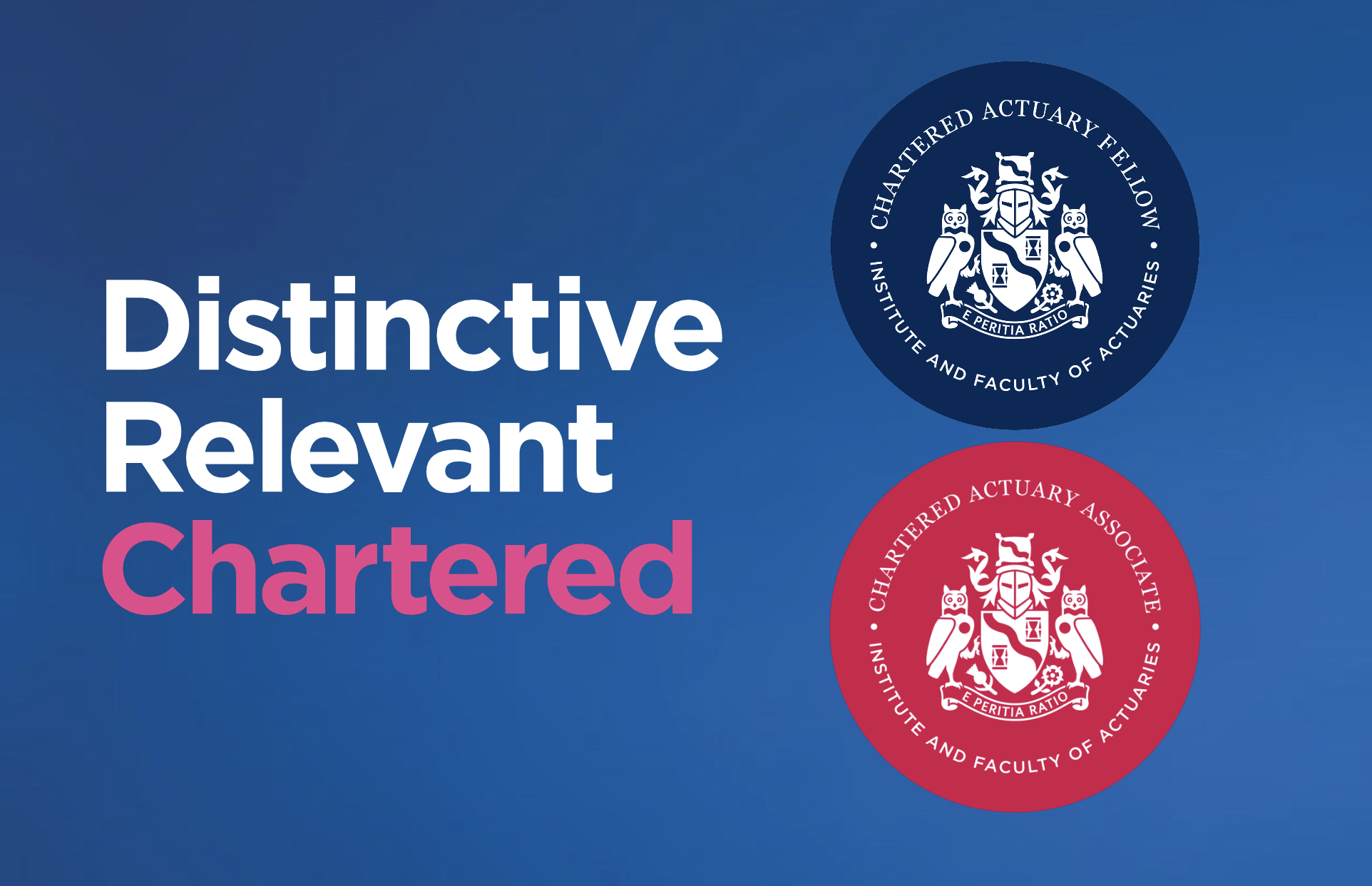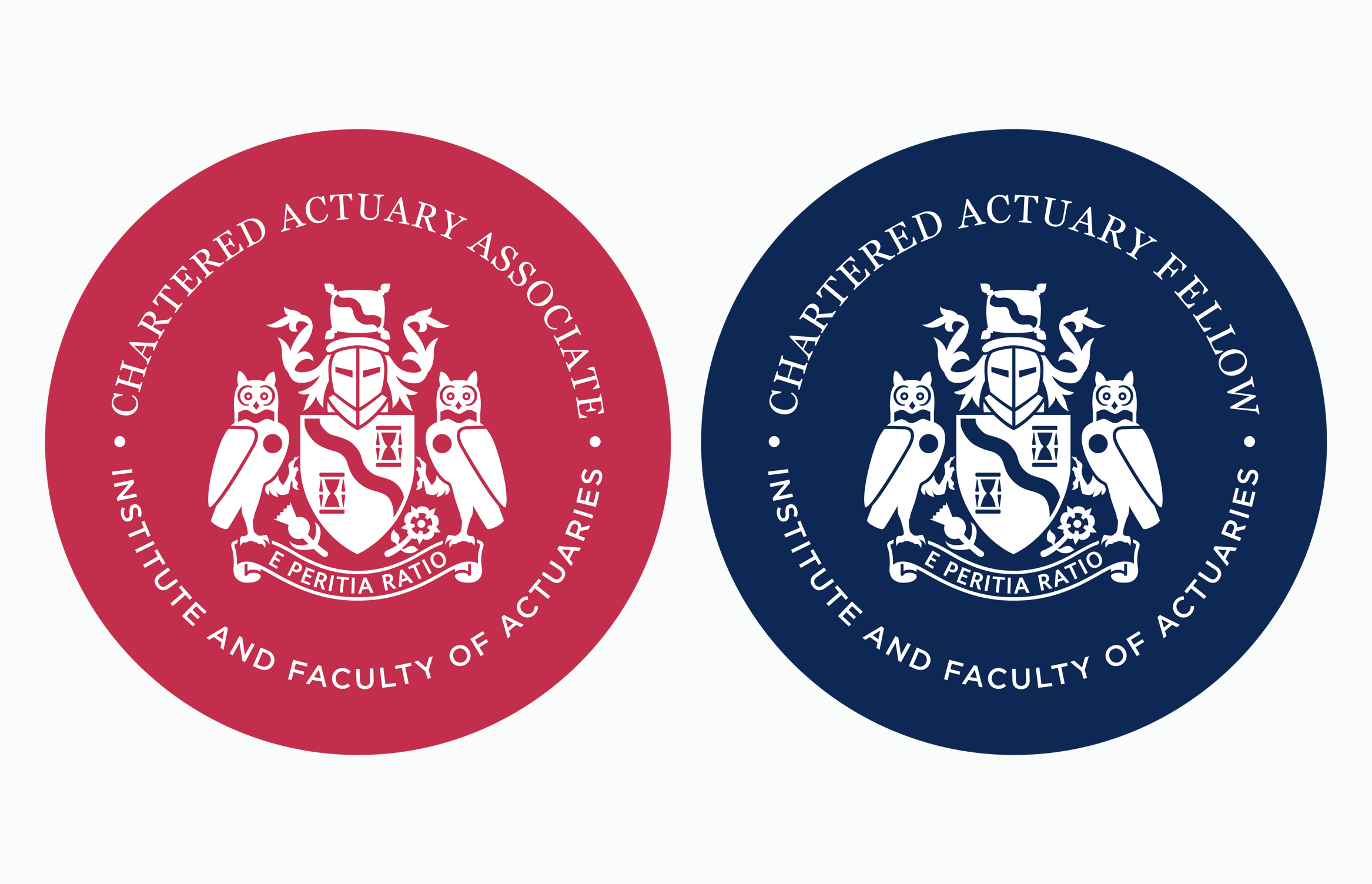Actuaries play a fundamental role in making the decisions that impact all our lives
Working with governments, charitable organisations, financial institutions, organisations and businesses around the world, they help to shape the thinking around huge financial, governmental, societal and environmental issues.
Issues like climate change. Social and health care. National and global economies. The impact of emerging technologies, and much more.
Using mathematical and risk analysis, behavioural insight and business acumen, actuaries examine incredibly complex issues, drawing insights that help decide how to address them.
Traditionally, actuarial roles have been in the financial sector, in pensions, insurance, investments and more.
Today, however, actuarial expertise is increasingly being applied to wider areas, like artificial intelligence, engineering, healthcare and sustainability. Governments and international agencies work with actuaries to consider global issues, like how to cope with pandemics and manage climate change.

Actuaries who gained their qualifications through the Institute and Faculty of Actuaries (IFoA) can describe themselves as chartered. They don’t have to, and some choose not to. But chartered status is a simple way to denote the level of training, professionalism and expertise its holder offers.
Anyone who does actuarial work can describe themselves as an actuary, even if they’re not qualified. Only qualified members of the IFoA, however, can call themselves a Chartered Actuary.
They’ve passed rigorous professional exams and made a commitment to continue developing their skills. And they’re governed by and adhere to the exacting standards of the IFoA’s Actuaries’ Code.
Chartered Actuaries use the designations Chartered Actuary (Associate) or Chartered Actuary (Fellow).
Associate members may also use the post nominals AIA C.Act or AFA C.Act
Fellow members may use the post nominals FIA C.Act or FFA C.Act
They may also use badges like those shown on their professional profiles.

Meet some of the people who daily use mathematical and risk analysis skills, behavioural insights and business acumen to look at complex issues and help decide how to address them.
We’ll be sharing member stories from around the world on a regular basis, so keep an eye out for updates.
Masimba Zata’s actuarial career sprang, like many others, from a love of maths. But while it had a traditional beginning, he’s now working in a decidedly non-traditional field.
“My career started off in pensions, then went into insurance,” he says. “I worked for various companies before moving into the technology sector with Moody’s.
“I’m now a subject matter expert in the development of actuarial software, with an active role in the development of software products as well as managing and supporting my team.”

“Being an actuary has allowed me to push the boundaries of what I thought I knew, what I thought I was capable of.” – Masimba Zata, Chartered Actuary
Please send any media enquiries to press.office@actuaries.org.uk